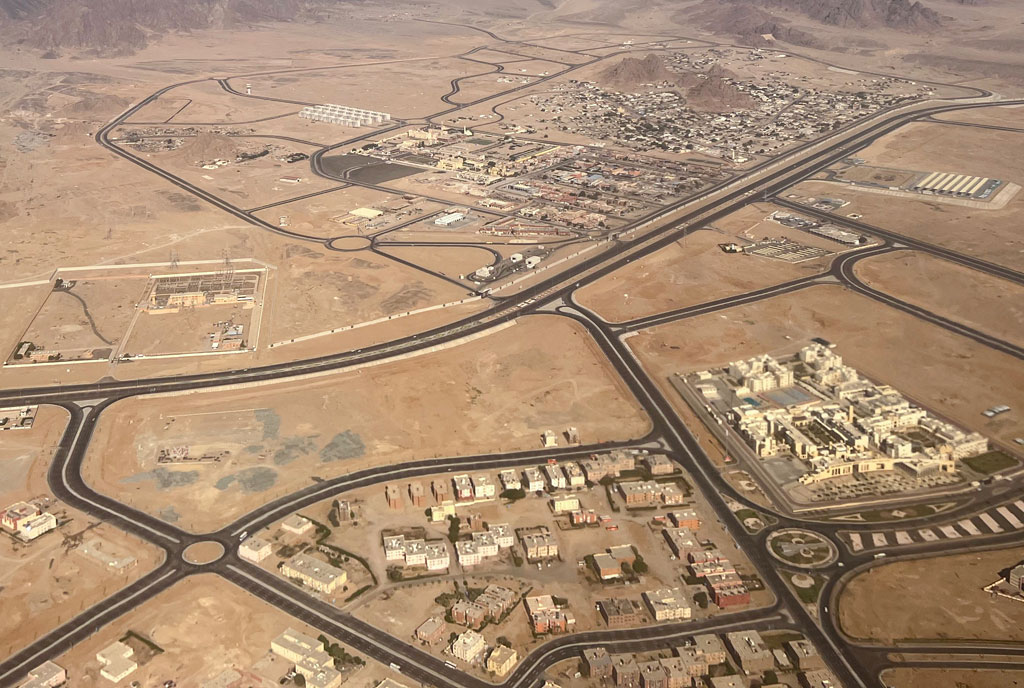African countries launch carbon markets initiative at COP27

Delegates arrive at the COP27 climate conference in Egypt's Red Sea resort city of Sharm el-Sheikh on November 7, 2022. PHOTO / AFP
What you need to know:
President Ruto called for the development of proper valuation of carbon sinks because they are under threat from deforestation and other forms of degradation.
SHARM EL SHEIKH: African countries Tuesday launched the Africa Carbon Markets Initiative (ACMI) at COP27 to expand the continent’s participation in voluntary carbon markets.
ACMI is a result of regional collaboration to provide climate finance for African countries inaugurated in collaboration with The Global Energy Alliance for People and Planet (GEAPP), Sustainable Energy for All (SEforALL) and the UN Economic Commission for Africa.
In a carbon market, different countries buy and sell carbon credits and carbon offsets (compensation to countries affected by climate change but are investing in solutions to prevent future emissions) that help to reduce greenhouse gas emissions.
Carbon markets will offer Africa an opportunity to unlock billions of dollars for their climate finance needs, while expanding energy access, creating jobs, and protecting biodiversity – all aimed at driving climate action.
Dr Mahmouyd Mohieldin, the UN Climate Change High Level Champion, says the initiative will incorporate all five priorities of COP27.
“African countries are keen to implement the initiative by establishing carbon markets that help implement all aspects of climate action including adaptation and mitigation measures. It represents regional collaboration and integration, helps in localising climate action as the results will be felt by farmers and local habitants in Africa. Besides, the effective impacts of establishing carbon markets on the Africa economies growth helps providing finance for climate action,” he said.
ACMI announced its intention to reach 300 million credits produced annually by 2030, which will in turn unlock USD 6 billion in income and support 30 million jobs.
Dr William Ruto, Kenya’s president, said Kenya is already a leader in the generation of carbon credits in Africa and accounts for over 20 percent of Africa’s volumes over the past five years.
“Our people have the potential to play a unique, indispensable, and globally significant role in the prevention and mitigation of emissions, the protection of crucial ecosystems, and the restoration of precious carbon sinks. The urgent actualisation of these critical interventions offers humanity its best chance of prevailing in the existential contest with climate change-induced catastrophe. By developing a robust, transparent, and sustainable mechanism through which a carbon credits market can yield attractive income and development opportunities for communities at the frontlines in the fight against climate change, we will align incentives among polluting producers and sequestration enterprises to achieve net zero industrialisation and shared green prosperity,” he said.
He added that a portion of the proceeds from Kenya’s credits has been invested toward funding clean cooking and solar home systems.
Gillian Caldwell, ACMI steering committee member and USAID Chief Climate Officer, noted, “The African voluntary carbon market will only succeed if people trust that African credits are driving real climate action and having a positive human impact.”
At the event, ACMI released the Africa Carbon Markets Initiative, Roadmap report: Harnessing carbon markets for Africa, which report identifies 13 action programs to support the growth of voluntary carbon markets on the continent.
President Ruto called for the development of proper valuation of carbon sinks because they are under threat from deforestation and other forms of degradation.
“We recognise that our expectations are massive. But the opportunity before us is tremendous. We can, and indeed must rise to the demands of the moment and seize it with both hands.”





